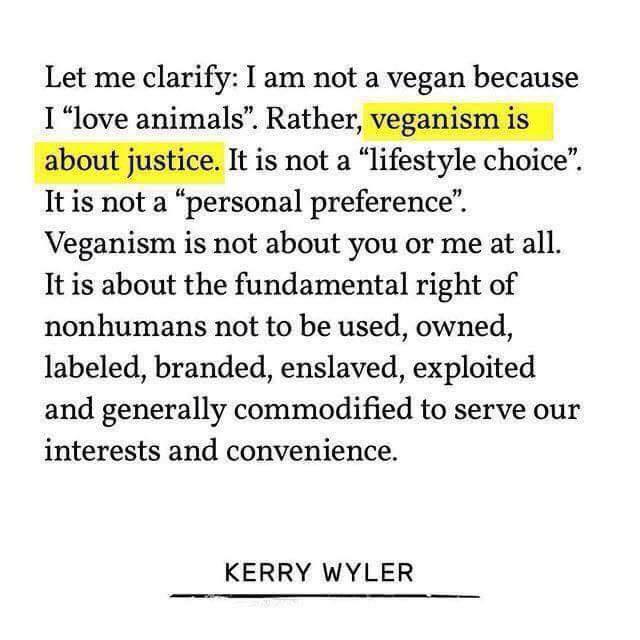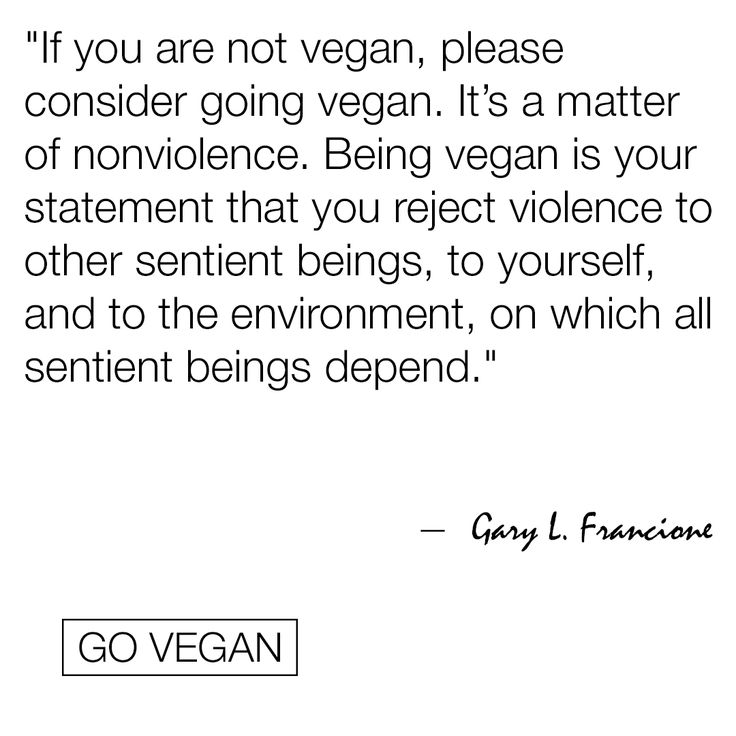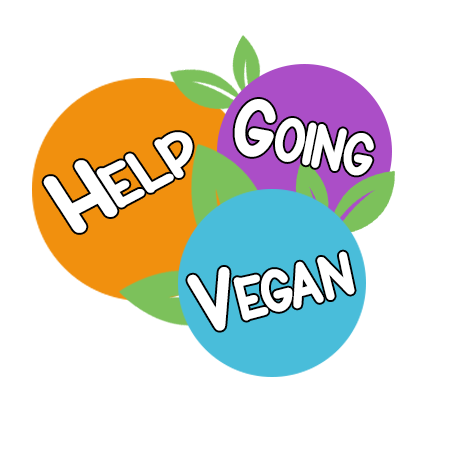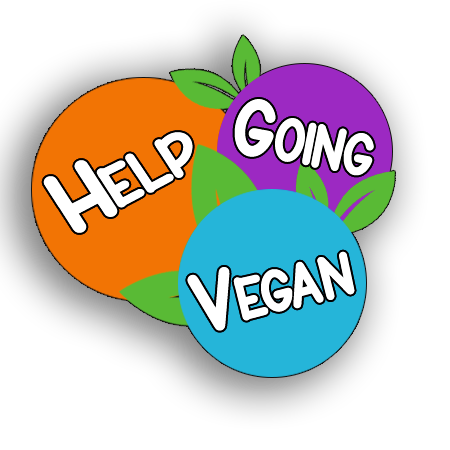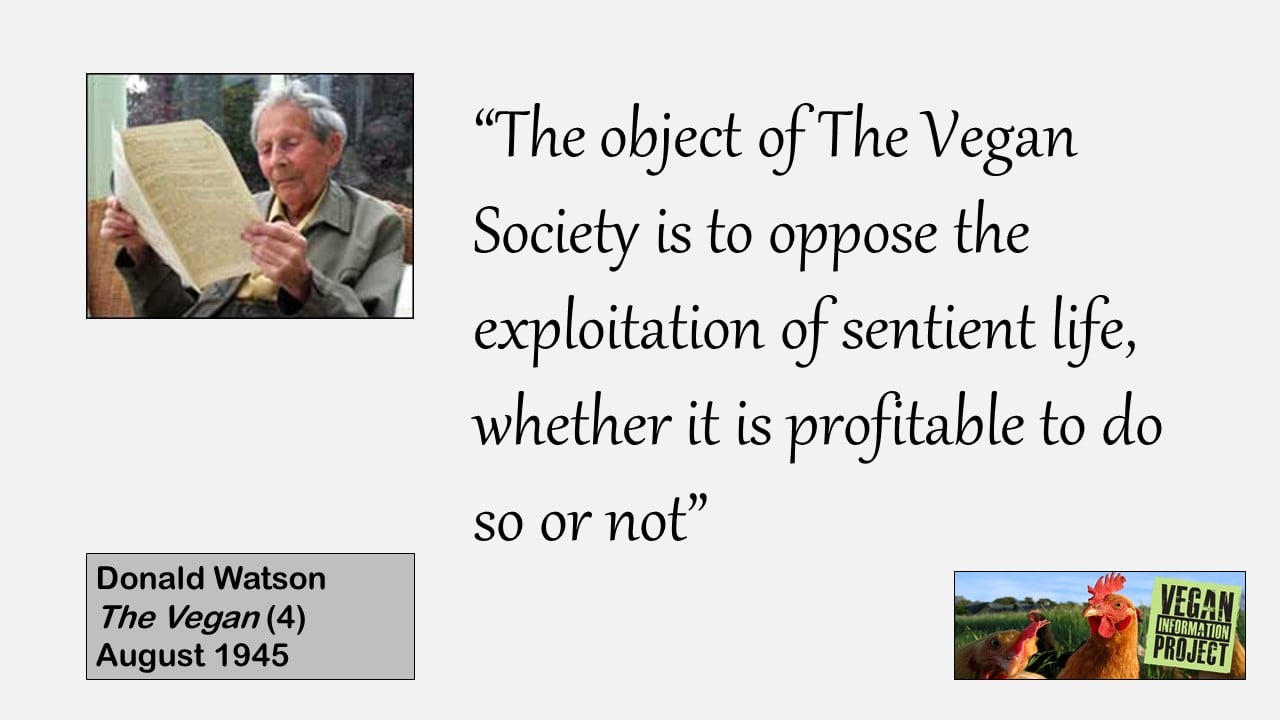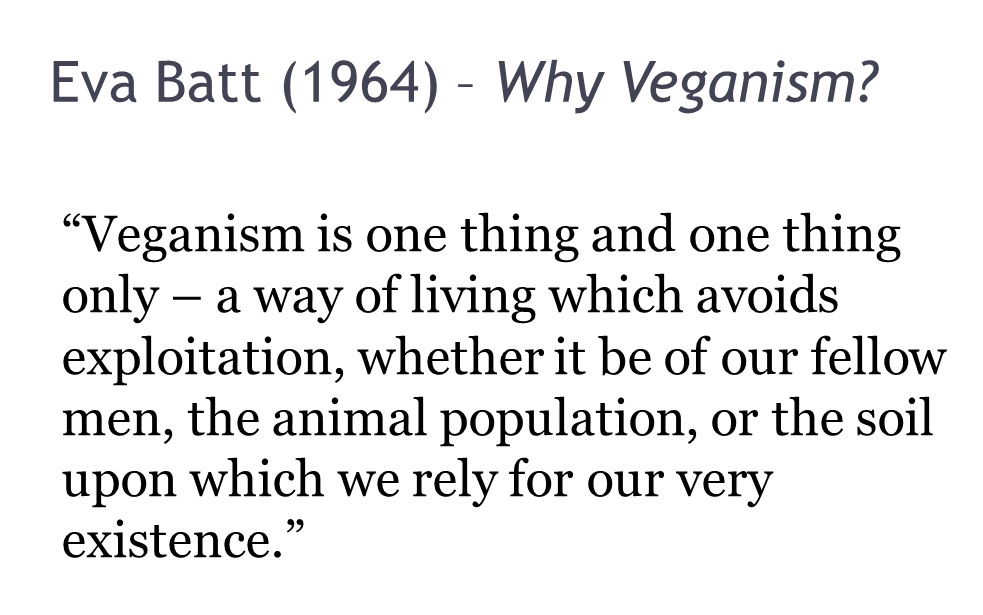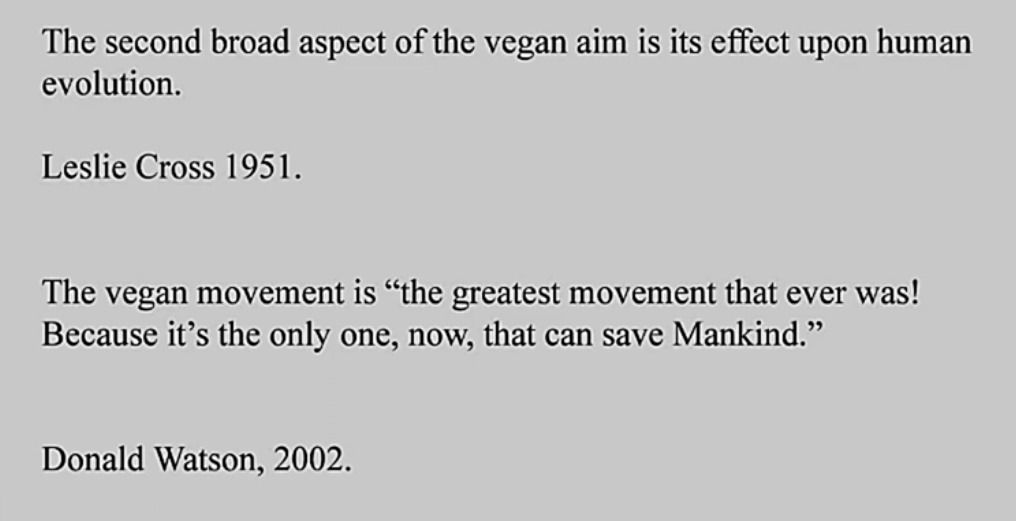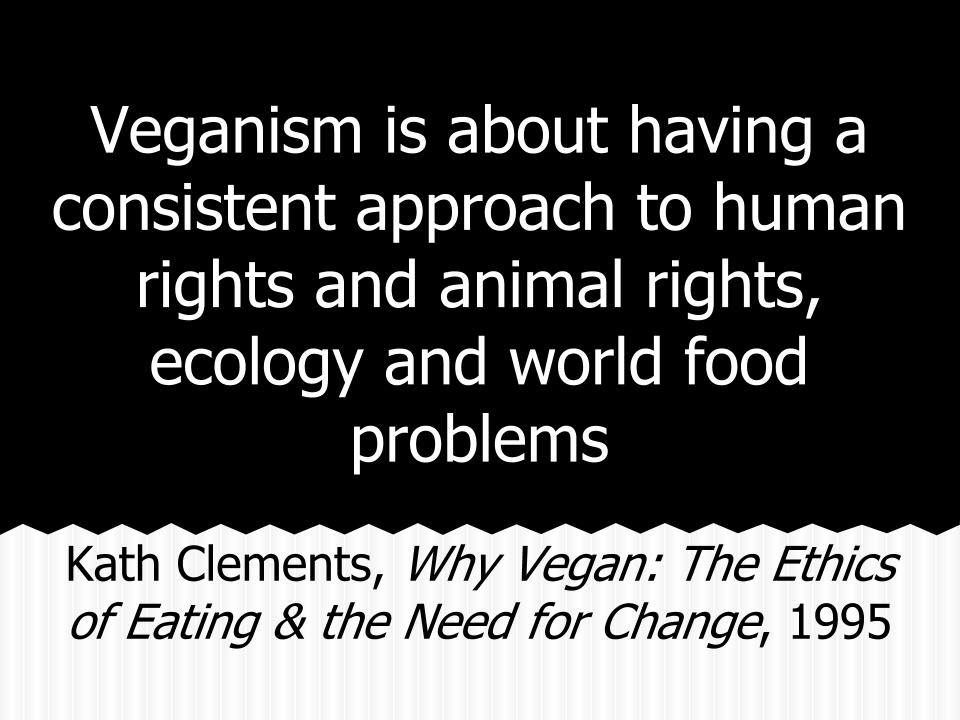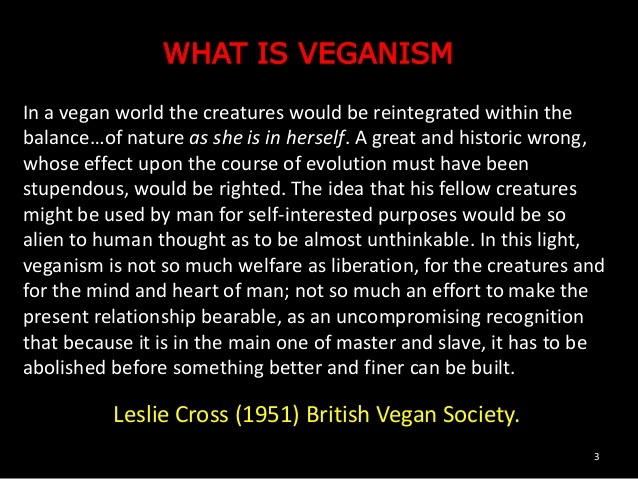
“Veganism” means living in recognition of the fact that other animals are unique, individual sentient beings, with physical and psychological feelings, who are consciously aware of themselves and their world, and who have interests including an interest in their own lives. They are not only in the world, but aware of it.
They have, therefore, the fundamental rights not to be used, owned, exploited or killed by humans.
Vegans, therefore, avoid participation in exploitation of our fellow animals for food, clothing, research, entertainment, labour or any other use, in so far as is possible and practicable whilst living in a non-vegan world.
Many vegans also engage in animal rights advocacy and actively work to develop alternatives to animal use and promote public awareness of animal sentience and animal rights.
Non human animals are sentient and aware. When we hurt them, they feel it. There is hardly an exception to animal use that does not harm them and all animal use is unjustified and unfair.
The only hope for other animals is complete cessation of our use of them. This defines veganism. The term ‘vegan’ came into being when the word was coined by Donald Watson, his wife Dorothy, Elsie Shrigley and others, using the first and last letters of the word vegetarian. And the philosophy was later shaped and laid out eloquently by Leslie Cross in a series of essays originally printed in ‘The Vegan’ and then later explained again by pioneers such as Eva Batt and Kathleen Jannaway.
Much later – Veganism came to be defined by The Vegan Society as;

Veganism is about equality, fairness and justice for everyone. However, the focus is on other animals because in terms of both numbers and degree to which we oppress and exploit them, the greatest injustice of non vegan living is inflicted
on non humans.
At its heart, veganism is about how we relate to others, ensuring that we live in ways that accord them the things we wish for ourselves, regardless of any perception of difference to them, or distance from them.
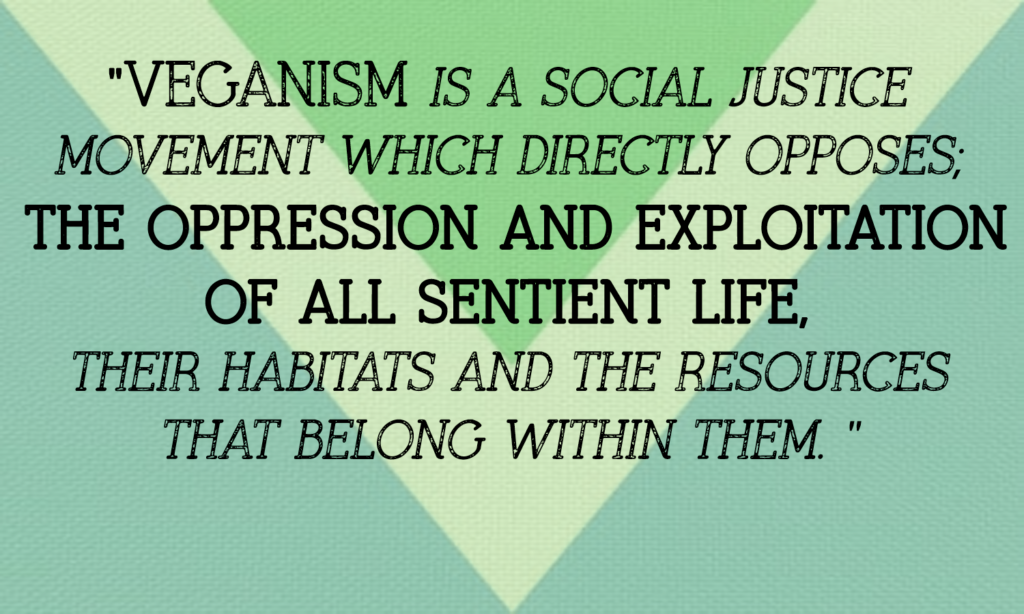
The abolitionist position, developed by Gary L. Francione, stands out from other positions with its insistence on veganism as a baseline, its focus on sentience, its inclusion of human and nonhuman beings, its rejection of campaigns that will result in changes to regulation, not abolition, of the property status of animals, as well as its focus on an evidence-based approach to change.
The approach provides a clear guideline to those who
♦ agree to the standard definition of veganism – that we ought not to use animals insofar as its possible and practicable — and that veganism is an absolute minimum of fairness
♦ agree that sentience is all that’s required for a person (human or non) to count morally as a member of the moral community
♦ agree that sentient beings should have at least one basic right: not to be treated as if they were property.
As a necessary consequence of these views, abolitionist vegans reject violence, including (a) direct violence, (b) racism, sexism, heterosexism, ageism, speciesism, and other forms of indirect violence and prejudice, as well as (c) the promotion of violence toward nonhuman animals through campaigns that promote regulating rather than abolishing animal use (e.g., campaigns that encourage ‘cutting back’ on animal use, vegetarianism, ‘reforming’ animal use to make it more ‘humane’, domestication, single-issue uses of nonhuman animals, and so on).
The animal welfare position that it is the suffering of animals and not their killing per se that raises a moral question begs a very important question: it assumes that because animal minds are different from human minds, animals, unlike humans, do not have the sort of self-awareness that translates into having an interest in continuing to live.
The welfare position necessarily assumes that animal life has a lesser moral value than does human life. And welfarists explicitly agree with this, as is clear in my book, The Animal Rights Debate: Abolition or Regulation?A major focus of my work has been to challenge that welfarist assumption and to argue that the only non-speciesist position to take is that any sentient being–any being who is perceptually aware and has subjective states of awareness–has an interest in continuing to live.
Any other view accords an arbitrary preference to human cognition. It is speciesist to maintain that animal life has a lesser value than human life. This does not necessarily mean that we must treat nonhumans the way we treat humans for all purposes. It does, however, mean that for the purpose of being treated exclusively as a resource for others, all sentient beings are equal and we cannot justify treating any sentient being as a resource.If animals have an interest in continuing to live, as I maintain they do simply by virtue of being sentient, and if that interest matters morally, which I argue that it must do, then there is only one plausible conclusion: any use–however “humane”–is unjust.”~ Gary L. Francione
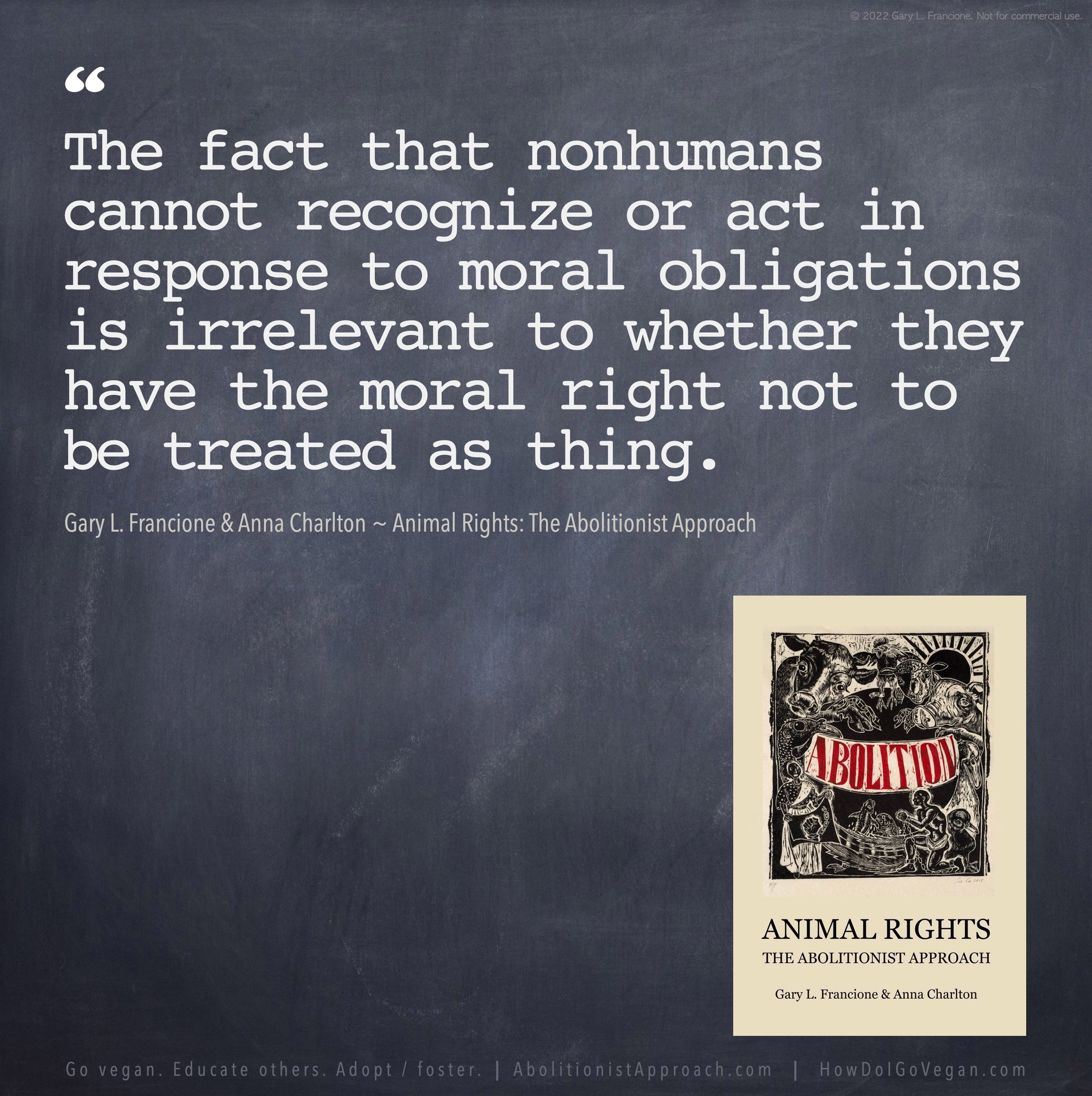
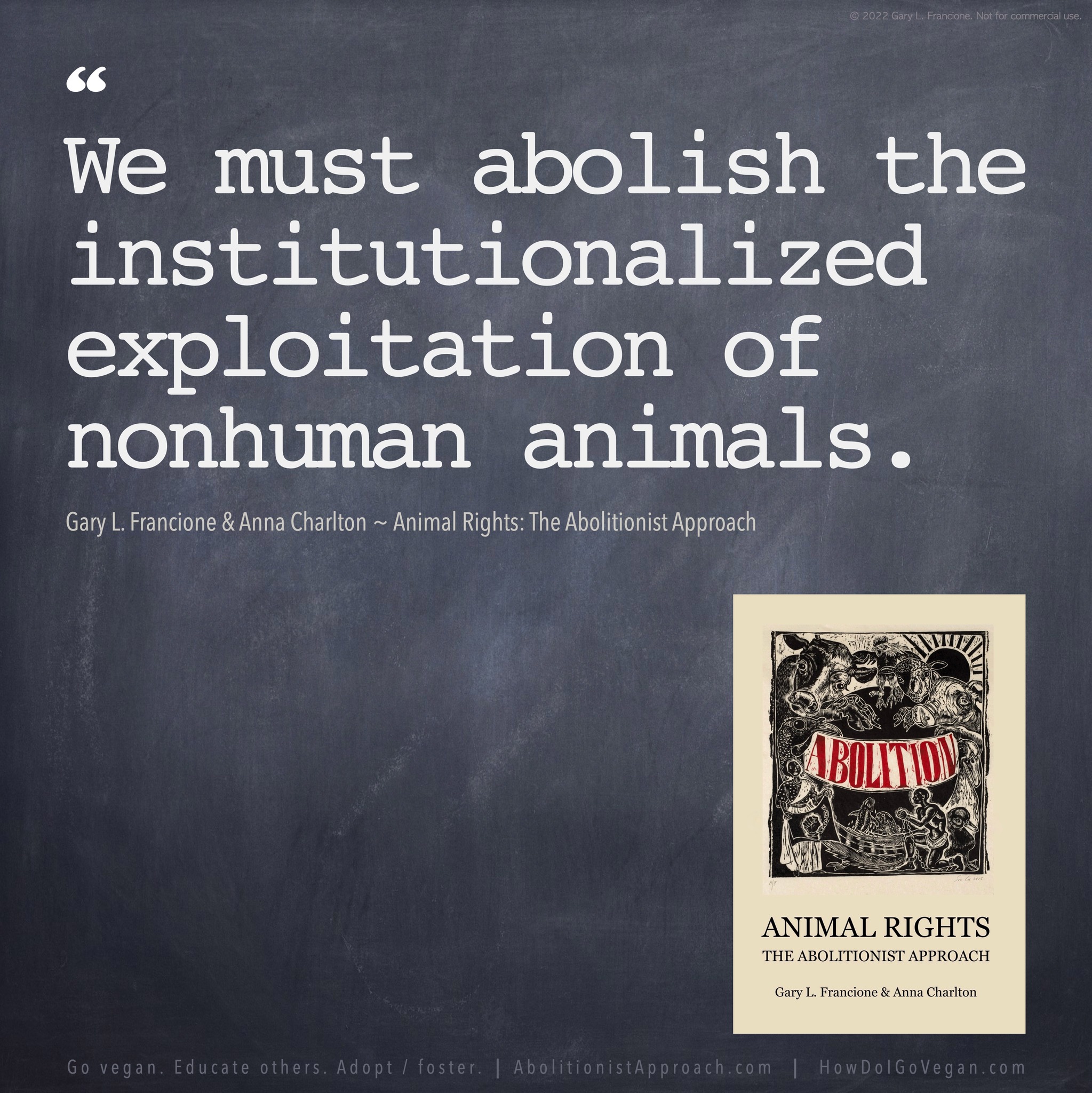
Aside from immediate effects, vegans consider this way of life to be no less than a duty to future generations. It will take many ages at the present rate of progress to undo all the results of past wrongs, if indeed this is ever possible; but whatever our actions, it is our heirs even more than we who will reap the results (good or bad) of what we do today, tomorrow, and the next day, until we leave them—what?
A desert, a conflagration, or a garden of plenty?
The decision is yours and mine.
Eva Batt – Here’s Harmlessness: An Anthology of Ahimsa, first published in 1964
